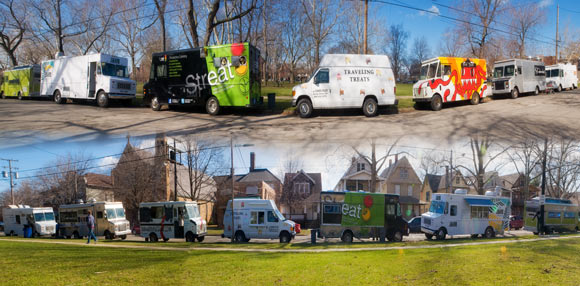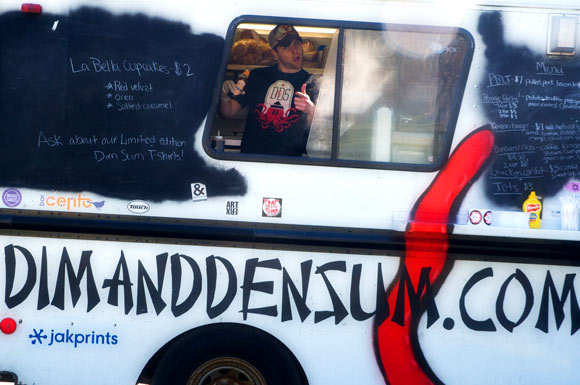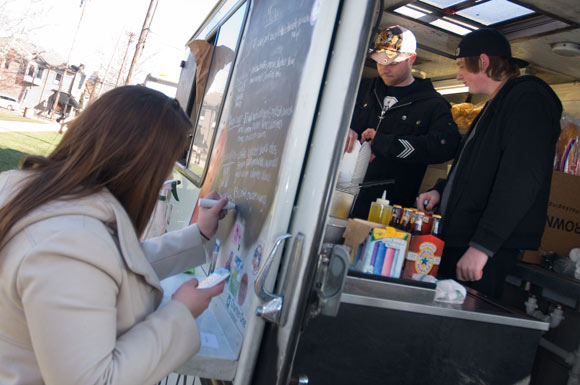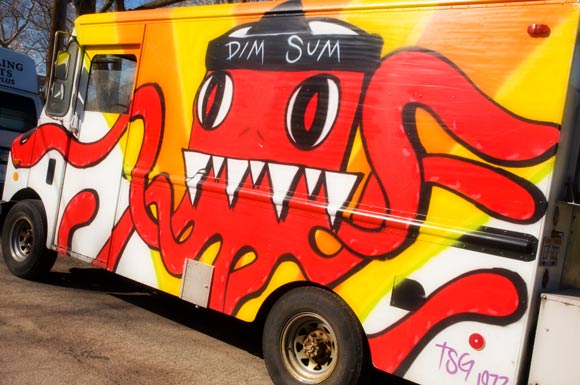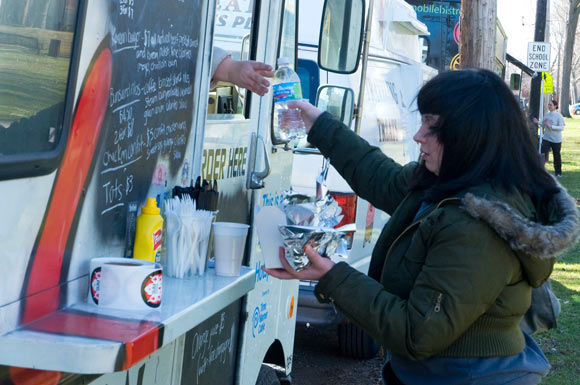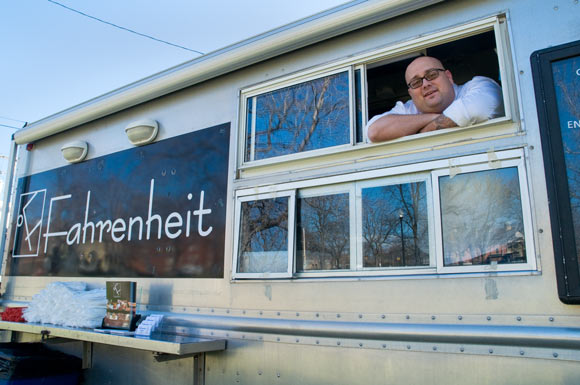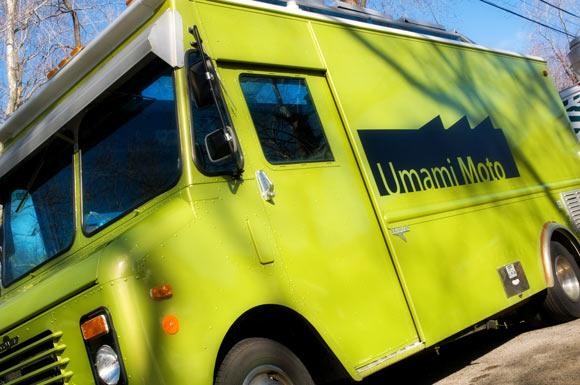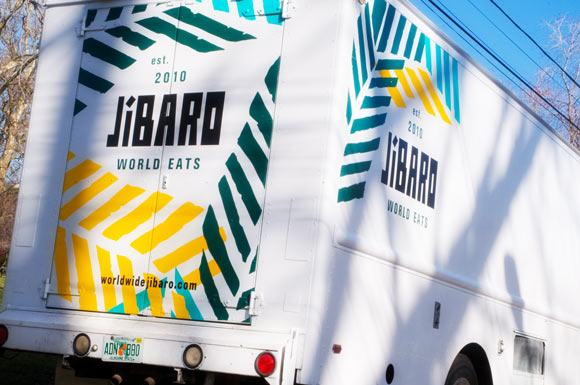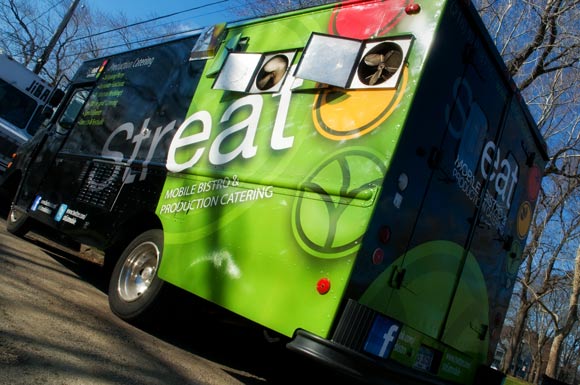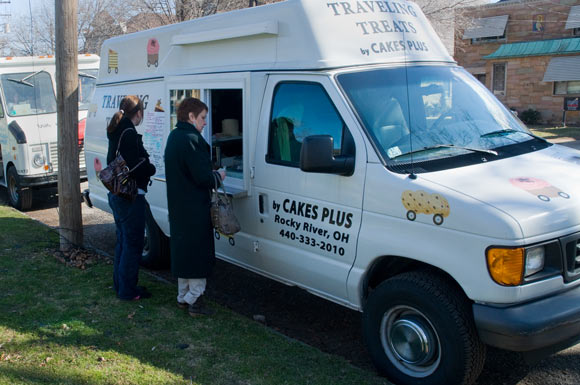hell on wheels: why food truck owners are feeling the heat
It was one of those deceivingly sunny late March days that we have here in Cleveland -- unseasonably cold, yet still more hopeful than February. Nevertheless, Tremont's Lincoln Park was bustling.
As many as 2,000 people flooded the square, lured from their cozy nests by the promise of Polish boys, tater tots, and pad Thai in a paper box. Lines some 50 deep formed in front of the dozen or so food trucks that participated in the inaugural C-Town Chow Down. Crowds were so large that eventually everyone ran out of food and the party dispersed.
"Food trucks are hot all over the U.S. right now, thriving in places as diverse as Portland, Austin and even Columbus," says Lizzy Caston, a communications pro who consults with cities on modernizing food truck policy. "They are successful micro-economic development engines that are creating independent wealth in one of the worst recessions in decades."
But rather than encourage the proliferation of these "micro-economic development engines," the City of Cleveland makes it nearly impossible to succeed, say food truck operators. An antiquated permitting process combined with a regressive zoning policy is stifling start-ups before they begin and making life miserable for those who do get rolling.
"If Cleveland is serious about showing they care about economic development," adds Caston, "they need to make it easier for people to own their own low-cost businesses. The demand is there; the supply is chomping at the bit to be there; and right now the city is preventing this through excessive regulation."
Instead of having to secure one or two simple permits, a new truck is required to obtain as many as 25 separate permits at a cost of over $3,000, explain those familiar with the process. Operators must provide detailed external and internal architectural plans of their rig for approval by the city planning department. Owners must also submit a detailed menu, even though that menu is likely to change often. And then there's the 50-page application.
The prize waiting for operators who make it out of that permitting process is a hodgepodge of confusing, contradictory and business-killing regulations. Rather than have free and unfettered access to customers, food trucks must seek permission from the council member of each ward in which they'd like to operate. Parks require special permits from the Parks Department.
Because the laws are so complex, even those tasked with enforcing them get it wrong much of the time, improperly shutting down trucks with appropriate permits.
Chris Hodgson, owner of Dim and Den Sum, is getting angry. Despite being something of a local celebrity, he has suffered a string of disappointing setbacks. He has been kicked out of legitimate spots from police, harassed by restaurant owners, and forced to make much of his income by catering special events and operating on private property by owner's consent.
That puts Hodgson in the ironic position of being one of the most popular chefs in Cleveland while being largely forbidden from doing business in the city.
Johnny Schulze would love to roll his Cajun-themed food truck Zydeco Bistro into the Cleveland market. But instead, he mostly sticks to his hometown of Wadsworth, in Medina County, where no such regulations exist. "I just want to be able to do a job that I'm good at and not be hassled," he says.
A veteran chef with Louisiana roots, Schulze has been waiting impatiently for the City of Cleveland to unveil its much-anticipated revised legislation for food trucks, a process that began over a year ago.
Councilman Joe Cimperman, whose ward includes much of downtown, agrees that revised legislation is needed and that it has taken its good, sweet time in getting here.
"Up until now, we have had the same-old hot dog carts," Cimperman explains. "We literally had to create new legislation that has to make its way through seven committees."
The ratification process begins in earnest, he promises, April 18, with the stated goal of getting passage by the first week of May.
But if and when that happens, food truck owners still are not likely to be pleased. In its current form, the revised legislation will indeed streamline the permitting process, but it will also limit truck access to a few specific zones outside the city center. Those zones include E. Ninth Street, Cuyahoga Community College, and University Circle. Special permits would still be needed for areas outside those zones.
Cimperman admits that much of the resistance is coming from restaurant owners.
"I am getting a ton of pushback from standard restaurants," says Cimperman. "We're trying to grow this in a way that satisfies everybody. We don't need a battle if we do this smart."
The restaurant-competition issue is a knee-jerk reaction from uninformed business owners, explains Caston.
"Trucks have proven to not be competitive with restaurants," she says. "They are what is known as 'complimentary retail' that attracts people who want to sit at a bar, cafe or restaurant for a different kind of meal."
Cimperman says that the zone-system likely to be unrolled this spring will be a temporary policy, a six-month pilot program designed as a learning period. The hope is that the policy can be broadened down the road.
As for all the fervor caused by something as seemingly innocuous as food trucks, Cimperman says, "This issue hits the sweet spot between city bureaucracy and people's passion for food. It's a great problem to have."
(With reporting by Angie Schmitt)


